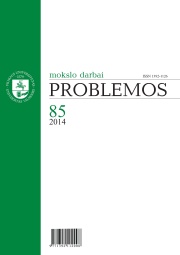HOW DO WE USE DEFINITE DESCRIPTIONS TO EXPRESS SINGULAR PROPOSITIONS?
HOW DO WE USE DEFINITE DESCRIPTIONS TO EXPRESS SINGULAR PROPOSITIONS?
Author(s): Evgeny BorisovSubject(s): Philosophy
Published by: Vilniaus Universiteto Leidykla
Keywords: definite description; reference; singular and general propositions; possible world semantics
Summary/Abstract: The paper is devoted to the question: under what conditions do we express a singular proposition (in the Kaplanian sense) when uttering a sentence containing a definite description as the subject term. It is argued that Wettstein’s claim that singularity of a proposition is determined by the demonstration of the referent of definite description accompanying the utterance contains an inconsistency. An alternative criterion of singularity is proposed: we express a singular proposition if the definite description in question is to be evaluated at a single possible world, and we express a general one if the definite description in question is to be evaluated at a range of possible worlds. This criterion is effective in explaining controversial cases in which we manage to express a true singular proposition with a subject constituent that does not fit the definite description used in the utterance.
Journal: Problemos
- Issue Year: 2014
- Issue No: 85
- Page Range: 130-140
- Page Count: 11
- Language: English

